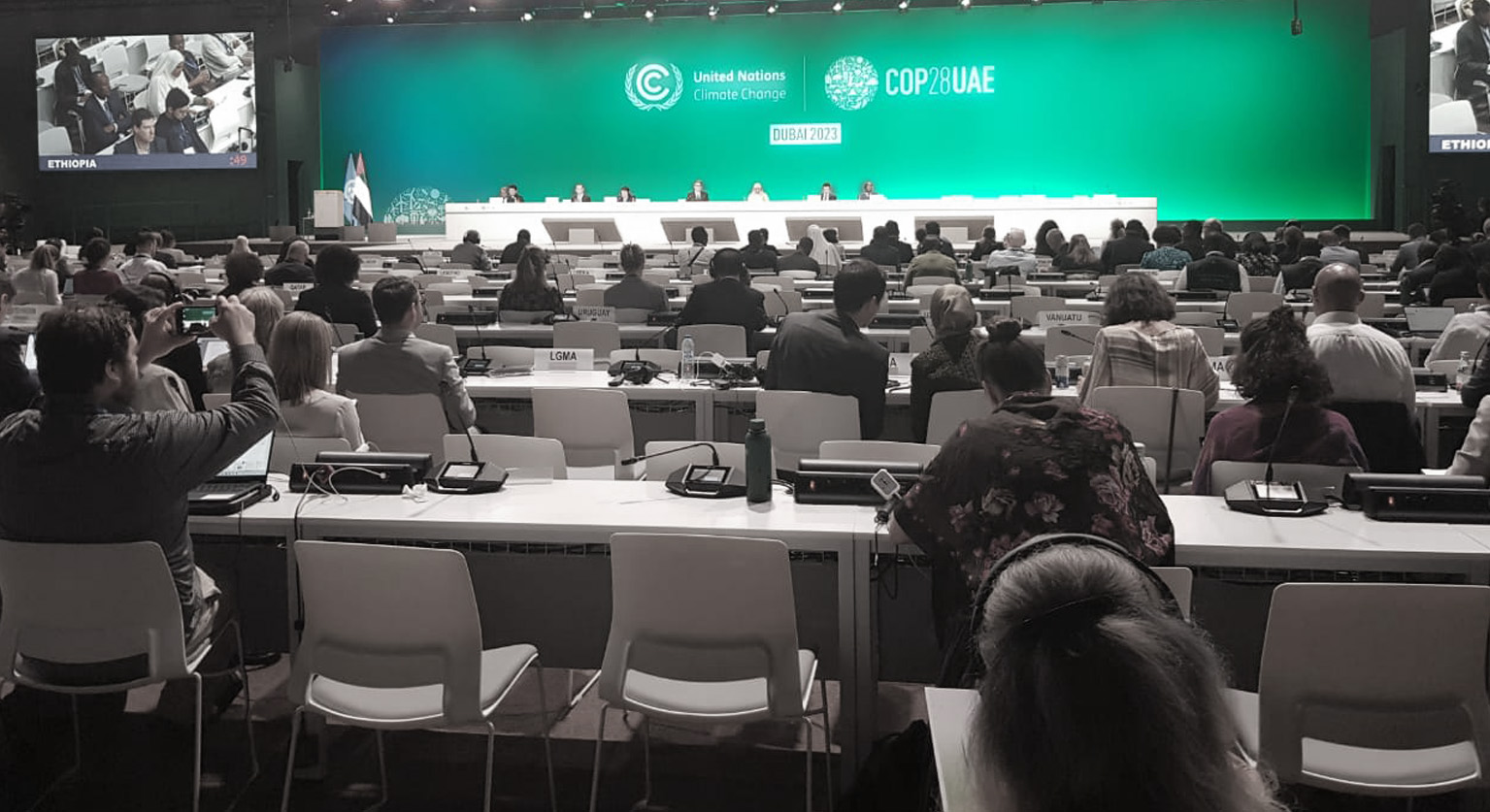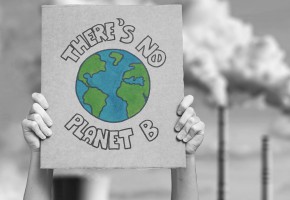
COP28 Amplifies the Gap Between State Commitments and Increased Emissions - Habib Maalouf

COP28 Amplifies the Gap Between State Commitments and Increased Emissions - Habib Maalouf
To evaluate the results of annual climate summits in general, and this twenty-eighth session of the Conference of the Parties to the United Nations Framework Convention on Climate Change (COP 28), it is necessary to utilize specific rules that are objective and based on data and numbers. The first of these rules is the level of compliance with the relevant international agreements and the extent to which the actual policies of countries match their pledges. It also requires making necessary historical comparisons to identify the process of decisions and promises and the process of the issue itself. This means comparing international and national measures with the trends and data related to current extreme climate phenomena. Thus, the success or failure of conferences and summits can be judged based on these rules.
A review of the reports coinciding with COP's date, especially those related to monitoring state projects to invest in fossil fuels, demonstrates that the gap between commitments to reduce emissions and investment projects in fossil fuels continues to widen since the International Energy Agency’s report issued two years ago on the occasion of COP26 in Glasgow. The report said that if the world wants to implement the Paris Agreement so that the Earth’s temperature does not exceed one and a half degrees, it must stop all new fossil fuel projects, especially coal, oil, and gas. Ahead of the Dubai Climate Summit, the production gap report, entitled "Phasing down or phasing up? Top fossil fuel producers plan even more extraction despite climate promise," announced that major fossil fuel producers are planning more extraction despite their climate pledges. The report was a collaboration between the Stockholm Environment Institute, the Climate Analytics Institute, the E3G Research Centre, the International Institute for Sustainable Development, and the United Nations Environment Programme.
Any serious attempt to cooperate to save the climate is subject to failure in light of the international competitive atmosphere over resources and markets. Moreover, in the context of the near-global wars being fought in Ukraine and Gaza, it was assumed that the money from the funds allocated to finance climate change mitigation and adaptation would go to financing the wars, which are, to a great degree, wars over energy and its supply routes. However, historical contradictions between international pledges at climate conferences (to pay attention to the biggest issue facing the planet), on the one hand, and the reality of state policies and the interests of major companies, on the other, remained the same in the meeting of states parties held this year in Dubai for 14 days (between the 30th of November and the 13th of December and extended an additional day), although those countries began signing the Framework Convention on Climate Change in 1992.
Since then, the world switched from discussing climate change as a possible scenario to discussing climate disasters as a tangible reality from which no country has been spared. However, state strategies in their countries remained the same, and so did the strategy for negotiating with each other at the annual climate conferences. Until the last minute of the announcement of the final statement, they continued to negotiate terms and draft texts, which most of the participants in drafting knew would not be binding except morally or formally and would not create an actual change in the policies of the countries causing disasters. Moreover, they cannot conflict with the main interests of the companies that control policies and politicians.
Although signatory countries recognized and ratified various climate agreements, from Rio 1992 to the Paris Agreement 2015, they would never harm their competitive interests in the market economy. This fundamental topic has never been on the agenda of climate summits. They recognized that fossil fuels are the primary cause of global emissions (at a rate of 90%), whose accumulation in the atmosphere caused climate change and disasters. However, they continued to dispute, day and night, texts and phrases such as gradually “abandoning” or “reducing” fossil fuels and coal throughout the negotiation periods. A new expression was added to this round of negotiations in Dubai. It is the word "relentless," although abandoning coal was mentioned in the text of the final statement of the Glasgow Conference two years ago (COP26 in 2021), and this pledge was dropped in the following year after the flow of Russian gas to Europe gradually decreased due to the War in Ukraine. Europe went back to its coal traditions. Nevertheless, yesterday's Dubai Declaration came out with a new phrase to "relentlessly accelerate efforts towards phasing out coal energy."
The issue of fossil fuels was met with a lot of controversy in the Dubai COP, from the moment of appointing a president of the conference who was also the president of an oil company to all the deliberations and arguments that took place on the subject, to the strict message of the oil-exporting countries not to mention this topic at all in the final statement, to the powerful corporate movement. Nevertheless, a text has emerged that signals the beginning of the end of fossil fuels, in the sense of “transitioning away from fossil fuels in energy systems, in a fair, orderly and equitable manner, and accelerating work in this critical decade, to achieve net zero emissions by the year 2050 in line with science.” It did not specify how to transition, the alternatives, and who will guarantee the stability of energy, markets, and prices, especially since this announcement was also accompanied by the lifting of subsidies or the “gradual cancellation of fossil fuel subsidies” and everyone remembers how the United States asked the Kingdom of Saudi Arabia to increase production to reduce prices, over and over again, which confirms these contradictions in international policies, decisions and final statements of climate summits.
As for renewable energy as an alternative to fossil fuels, which has become a new myth, the final statement spoke of the necessity of “tripling the capacity of renewable energy worldwide and doubling the global annual rate of improving energy efficiency by 2030” without any reference to the rare earth (and minerals) from which these renewable energy tools are made, the spaces they require, or the economic cost. Today, the world relies 80% on fossil energy, 12% on nuclear energy, and 2% on organic energy. The remaining renewable energy will not have a significant impact, even if its size doubles, relative to the rest of the energies. Moreover, exploration and extraction projects for fossil energies of all kinds have not and will not stop in most oil and gas countries and those preparing to enter their club, such as Lebanon, before 2030, at least.
In this context, what meaning remains of the controversy over the expressions of abandonment, mitigation, transformation, and transition in which the halls and corridors of the conference in Dubai and the draft statements were buzzing? Everyone accepted the global assessment of the Paris Agreement, which confirmed that countries, through their pledges, practices, and policies, are not on the right track to prevent Earth's temperature from increasing by a degree and a half. However, they continued the same approach despite knowing that climate disasters intensified after the Earth’s temperature rose by one degree. They also know that exceeding one and a half or two degrees would be catastrophic for the world and that the gap between commitments and the continued rise in the frequency of disasters had become too large to bridge. They also continued the same negotiation approach that contradicts the reality of international policies (of each country).
On the other hand, on day one of the climate negotiations, COP28 decided to activate the Loss and Damage Fund, which was placed on the agenda of the previous summit held in Sharm El-Sheikh last year. A committee was formed to lay the foundations for the Fund's work, which is supposed to focus on compensating losses and damages resulting from climate disasters. The host country donated a particular amount to the Fund, and other countries donated minimal amounts, most of which did not exceed 400 to 700 million dollars. However, according to relevant international reports, the Fund requires three times the amount for mitigation and adaptation, that is, 300 billion dollars annually at the very least, based on the accounts of 2009, when a fund of $100 billion was allocated annually starting in 2020, which has not been paid as of the date of publishing this article! It was also suggested at the Dubai Summit that this new fund for losses and damages should be seen as a pool for “donations" instead of “compensation” from developed and industrialized countries to developing countries!
In conclusion, based on the above, the Loss and Damage Fund will not be as large as the expected disasters. Many pitfalls are still in the way of its management, how to assign responsibilities, and how to choose between the developing countries that are supposed to be compensated.
The 28th international climate meeting was held at Expo 2020 in Dubai. It was the first time that this type of meeting was held in a city whose area may exceed 4 kilometers, which made it difficult for the participants to travel between halls and participate in hundreds of daily activities. According to organizers, the number of participants also reached new records, exceeding 90 thousand for the first time. Thus, many questions were raised about the need for this massive number of participants as an additional source of emissions and reconsidering the themes and agendas of these annual meetings, in which the number of participants increases yearly, coinciding with the increase in emissions and disasters! Moreover, new and advanced voices from Arab civil society were heard in this COP, presenting the issue of climate change from the perspective of changing the controlling economic systems as well.
There is a need now to begin preparatory work for civil society to restore its role as observer, accountant, and bearer of liberatoty cultural, civilizational, social, and economic alternatives, instead of transforming its role into a kind of “greenwashing” for major polluting companies and the governments that represent their interests as soon as it is allowed to enter and participate formally in the nebulous climate conferences.
Recent publications



